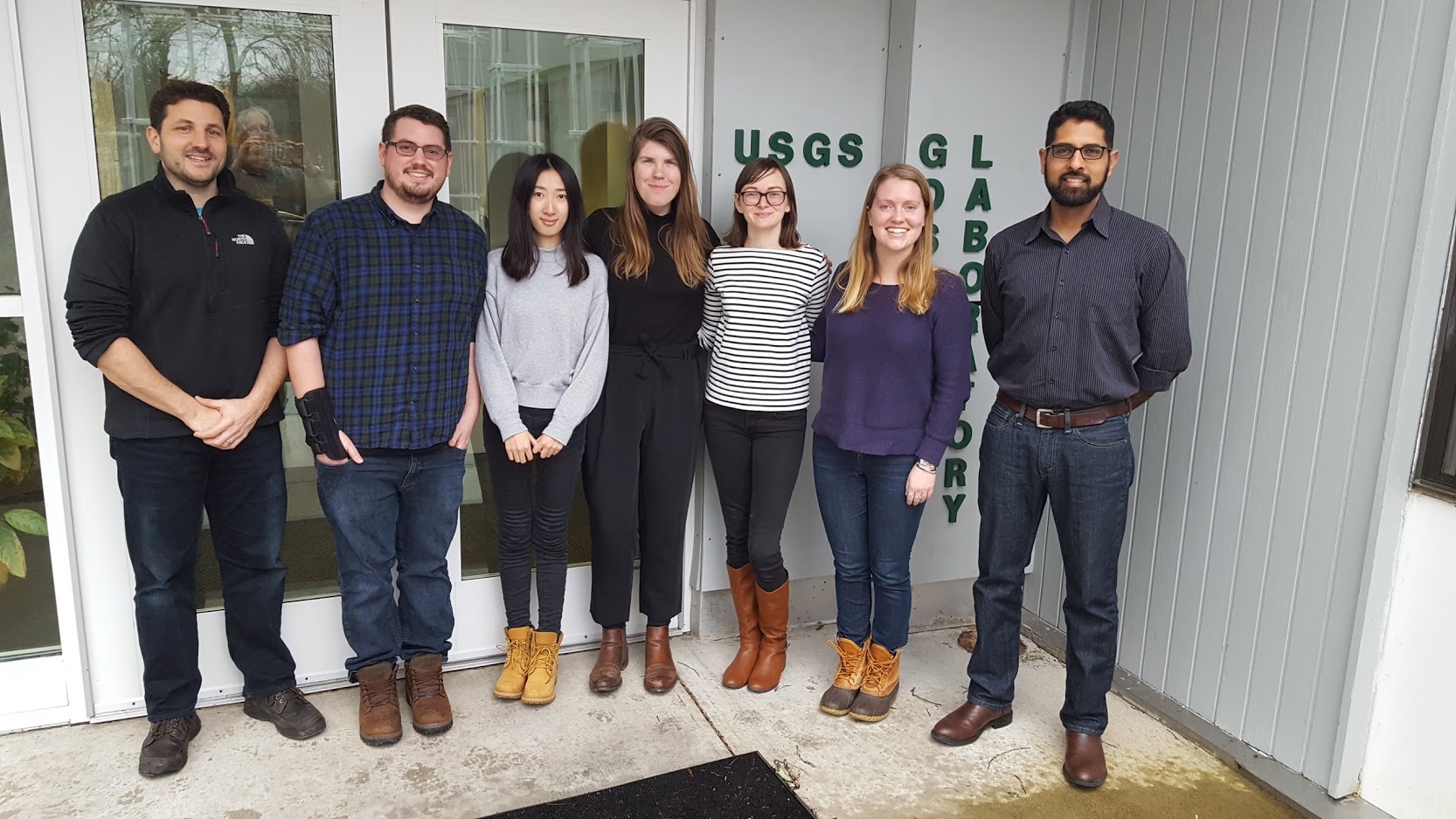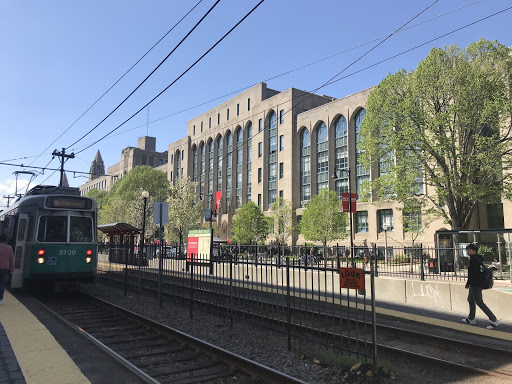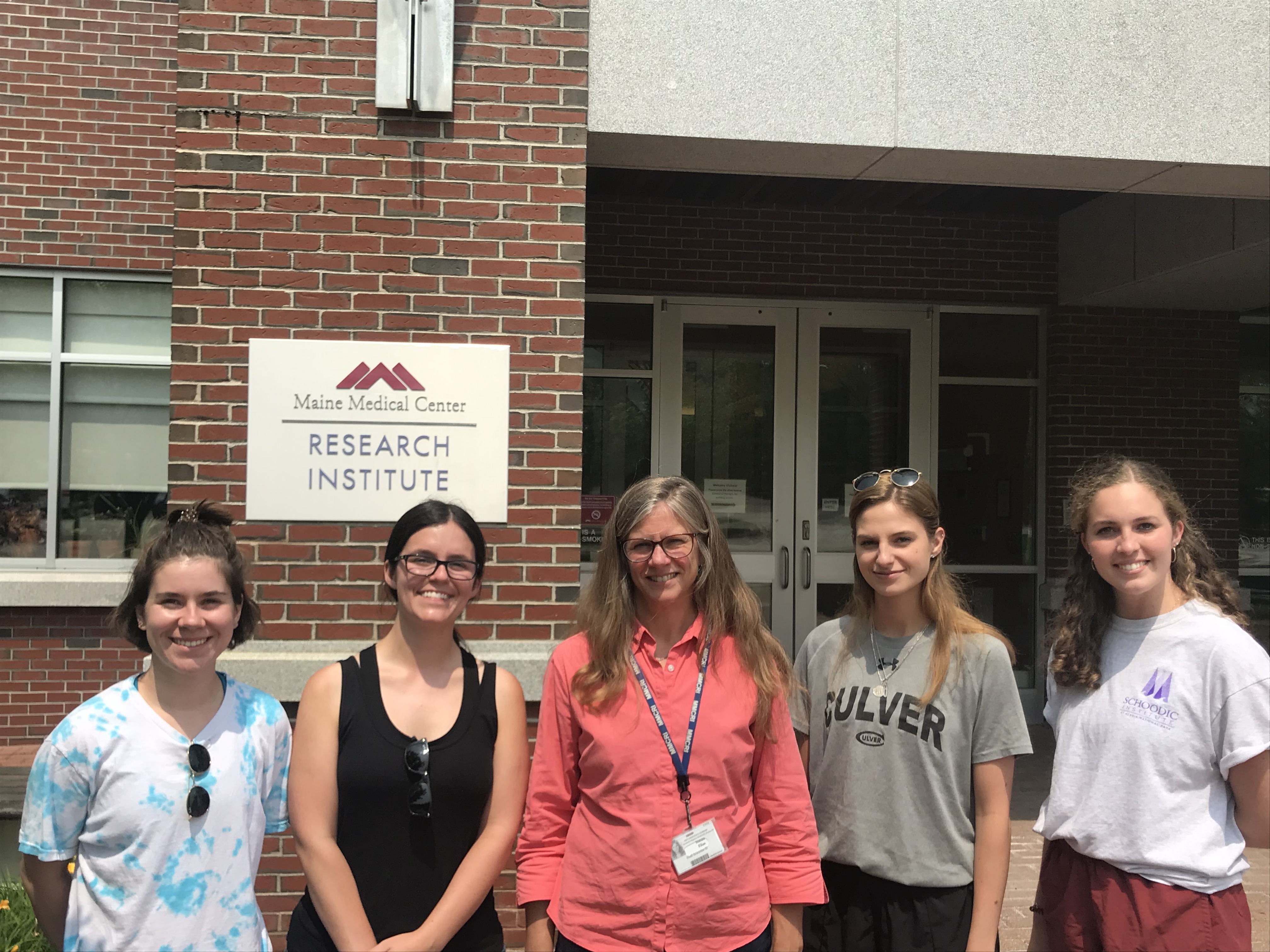DEVELOPing Connections in the Northeast
A Look into the Journey of NASA DEVELOP’s Newest Location
by Celeste Gambino
June 8, 2020

NASA DEVELOP’s first Boston project team, the spring 2018 Plum Island Estuary Water Resources team with lead science advisor Dr. Cedric Fichot (left) and project partner Dr. Neil Ganju from the USGS Woods Hole Coastal and Marine Science Center (right). Image Credit: Kim Johnson

Boston University’s College of Arts & Sciences, where the NASA DEVELOP office is housed. Image Credit: Zachary Bengtsson
In 2015, Dr. Cedric Fichot was a postdoc at NASA’s Jet Propulsion Laboratory (JPL). Across from his office space was a team of three DEVELOP researchers working to complete a 10-week feasibility research project. Dr. Fichot quickly got to know these DEVELOPers, and this introduction started a long line of his involvement in the NASA DEVELOP National Program. He assisted the Los Angeles Oceans I and II projects, providing marine remote sensing expertise, and even data, to help calibrate algorithms used for the DEVELOP projects.
“Since opening [the DEVELOP MA location], multiple professors, researchers, and graduate students from the Earth and Environment department and Center for Remote Sensing have advised DEVELOP projects, building the depth of capacity built for participants and partners.”Shortly after, Dr. Fichot became an assistant professor at Boston University (BU). After leaving JPL, he saw an opportunity to continue assisting DEVELOPers and prolong his engagement with the DEVELOP Program. He brought it with him to Massachusetts and engaged them with BU’s Earth and Environment department. BU’s Earth and Environment department has long prioritized its interdisciplinary nature and expertise in remote sensing. DEVELOP did not have a location in the Northeast, so in the spring of 2018, Dr. Fichot championed the opening of the Massachusetts – Boston (MA) location, making it the newest NASA DEVELOP location nationwide.
A guiding champion and strong node leadership are required to establish a new DEVELOP location and create the anchors to continue support for the node into the future. Kim Johnson, a fall 2017 DEVELOP participant at the Langley node, expanded her experience base by moving to Boston and supporting the opening of the MA node as the acting Center Lead for the spring 2018 term. During the next term, participant Zach Bengtsson returned for a second term and became the MA Center Lead for the next year from summer 2018 through summer 2019. The node leadership role was then transitioned to the current Fellow, Celeste Gambino, who has led the MA location since fall 2019.
Opening a new location also requires significant coordination; most notably establishing working relationships with the new host department, connecting with the USGS as a lead partner, as well as coordinating with other partner organizations and local communities. A part of the Earth and Environment department, the DEVELOP location is housed in BU’s Center for Remote Sensing.

The summer 2019 Southern Maine Health and Air Quality team visited with project partner Dr. Susan Elias to hear more about the community concerns and goals for the project. Image Credit: Zachary Bengtsson
With the proximity to experienced remote sensing scientists in a wide range of disciplines, it was an immediate benefit to MA DEVELOPers. Since opening, multiple professors, researchers, and graduate students from the Earth and Environment department and Center for Remote Sensing have advised DEVELOP projects, building the depth of capacity built for participants and partners.
“DEVELOP MA teams thrive on interacting first hand with the people they work with and the impacts of the projects they are conducting.”For DEVELOP, branching out into New England allowed for proximal access to new partner organizations. Since the location opened in the spring of 2018, DEVELOP MA has completed seven projects. Four of these projects were local to the New England area and involved seven new-to-DEVELOP partner organizations. The addition of a DEVELOP location in New England has allowed for deeper partner connections in the region. Teams often prioritize visiting partners during the term, both to see the study area first hand, but also to gain a deeper understanding of the community they are working to support.
DEVELOP MA teams thrive on interacting first hand with the people they work with and the impacts of the projects they are conducting. This applied nature of DEVELOP’s projects is amplified by the proximity to BU researchers, whose ultimate mission is to benefit society. This energy and focus on service to local communities is why DEVELOP’s newest location has delivered project results with significant impacts and has continued to expand since it began just over two years ago.